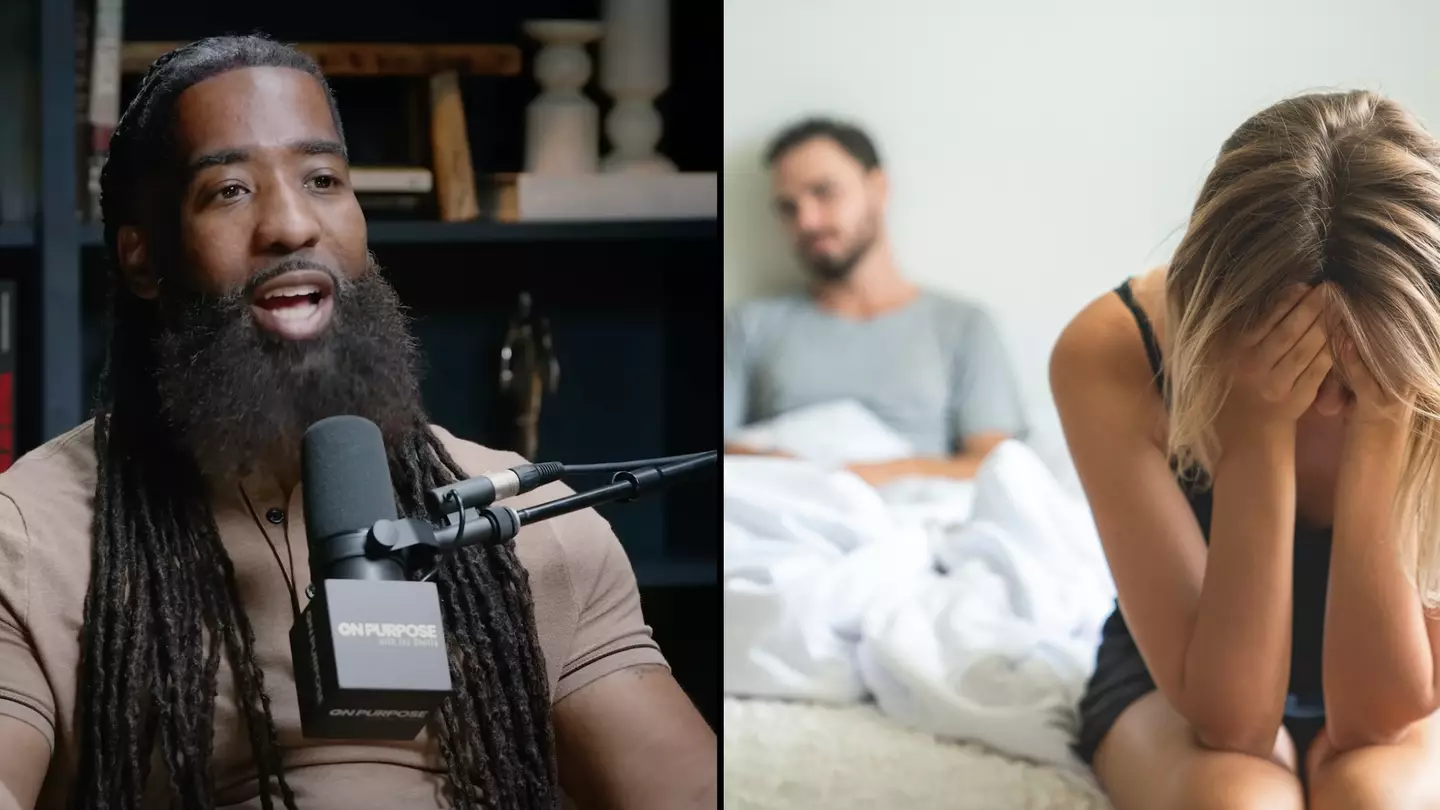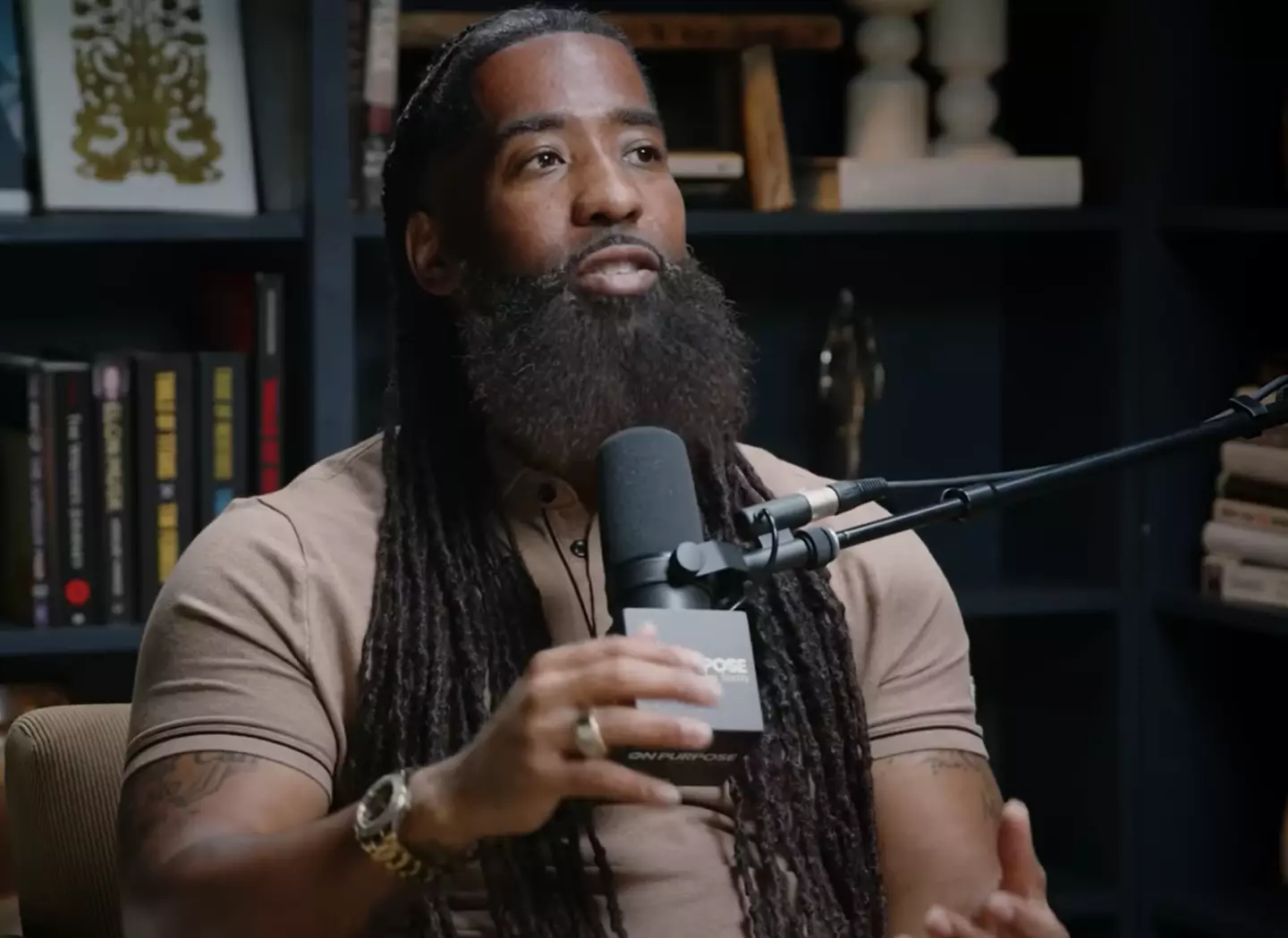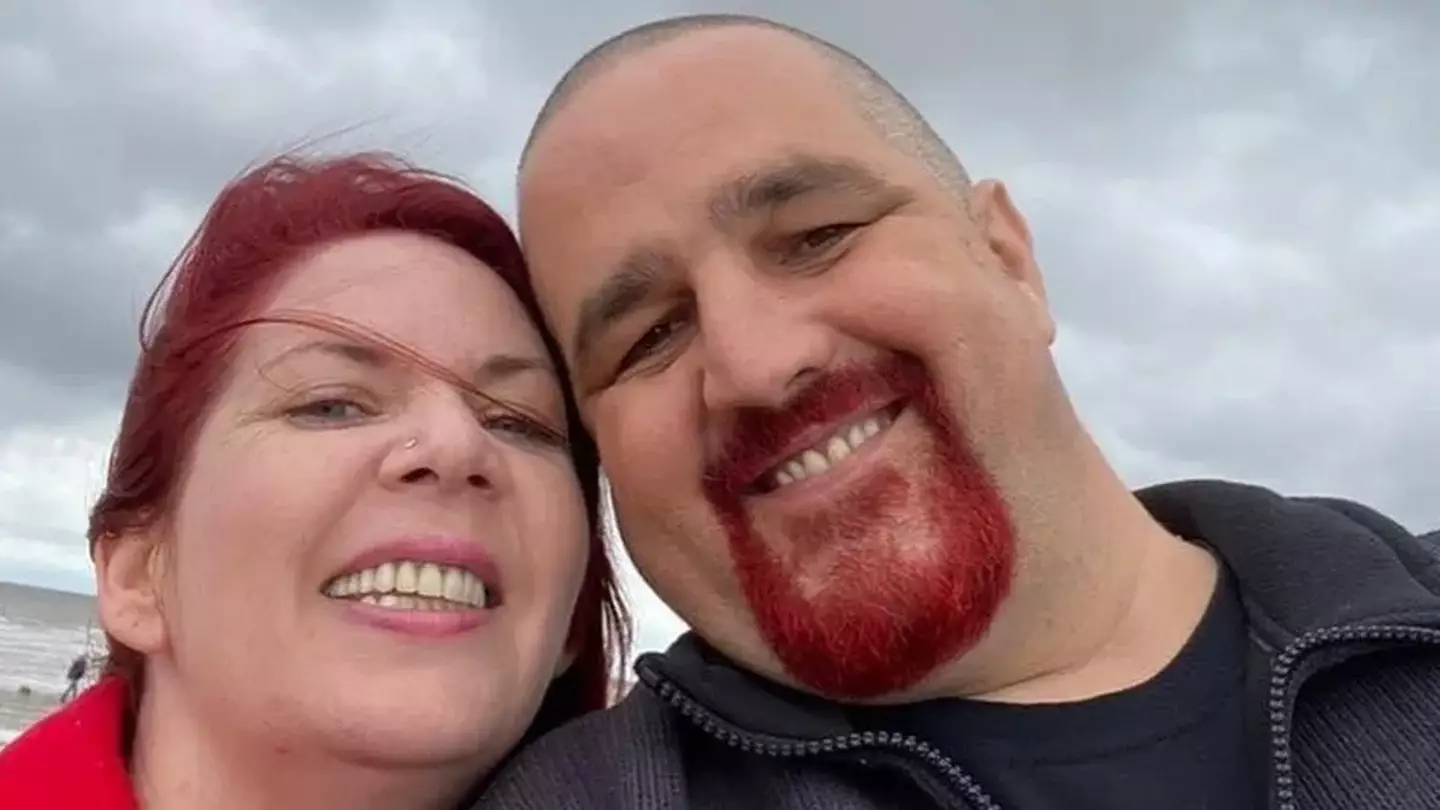Have you ever had a really important deadline coming up and despite the time crunch, you just can’t seem to put TikTok down?
Or, perhaps you’ve gone to the pub with your mates, and neither you nor they can concentrate on anything either of you are saying.
If you’ve experienced either of those situations then you may be suffering from a phenomenon called ‘popcorn brain’.
The term was originally coined by David Levy, a quality-of-life researcher and professor emeritus at the University of Washington Information School, in 2011.
Levy used it in an interview to describe modern individuals’ lack of focus due to their dependency on digital media.
Below, we’ve outlined exactly what experts believe ‘popcorn brain’ is, the typical signs you exhibit and how you can begin lengthening your attention span again.
“‘Popcorn brain’ is this idea that, like popping popcorn, our thoughts are scattered,” clinical psychologist and yoga therapist Leslie Daly told Women’s Health.
“Because of all the media we’re consuming and the time we’re spending on internet-driven tasks, we’re having a harder time staying focused. We’re feeling like our mind is floating all over the place.”
Her sentiment has been echoed by Dr. Aditi Nerurkar, a global public health expert who appeared on Steven Bartlett’s popular Diary of a CEO podcast.
“Most people have popcorn brain,” she confessed to the Social Chain co-founder. “Popcorn bran is a biological phenomenon coined by a man named Doctor Levy, a psychologist. “It is essentially your brain circuitry starting to pop based on overstimulation. So it’s not like your brain is actually popping but that sensation of ‘popcorning’.
During the episode, titled “The Mental Health Doctor: Sitting Is Increasing Your Anxiety!, Your Phone Is Destroying Your Brain, You May Have ‘Popcorn Brain’,” Dr Nerukar went on to say that she understands social media and websites are ‘hard to disengage’ from and sympathized with how ‘difficult’ it was to live offline.
“Popcorn Brain is an affliction that nearly every single person has right now,” she admitted. “Think about what you do when you’re waiting in line at the grocery store. You’re not just letting your brain wander pondering things, you are on your phone.”

‘Popcorn brain’ was a subject on the A Diary of a CEO podcast (Diary of a CEO/YouTube)
What are the typical signs of ‘popcorn brain’?
Clinical health psychologist Jennifer Wolkin has stated that popcorn brain looks different to everyone and that its intensity may depend on how often you consume media.
How stimulating the media is and your multitasking habits can both play a factor too, but regardless, there are some clear signs that you’re suffering.
Wolkin told Women’s Health that scattered thoughts and frequently feeling distracted is a clear indication that your brain is ‘popping’.
Feeling exhausted mentally, having a disinterested in others and jumping from conversation topics are all signs that it may be time to quit your doom-scrolling habit.
Medical practitioners recommend you seek professional advice if you’re exhibiting physical symptoms, such as headaches and eye strains, as well as feeling lonelier than usual or suffering from sadness.

The effects of ‘popcorn brain’ are reversible, according to experts (Getty Stock Image)
How to manage ‘popcorn brain’
If any of the typical ‘popcorn brain’ signs have hit home, then you’ll be pleased to know there are tried-and-tested ways of managing it.
One of the main ways is to reduce your digital media usage and take regular screen breaks, while Real Simple recommends you utilize the Pomodoro Technique to help you focus on a single task for longer.
Clinical psychologist Sanam Hafeez says regular physical exercise can help you recover from the effects of excessive phone use.
“Engaging in activities that challenge cognitive abilities, such as puzzles, learning new skills, or engaging in intellectually stimulating conversations, can help improve attention span and cognitive function,” she adds.
Other recommended steps include setting up tech-free zones in your apartment and working on regulating your nervous system with sauna stints and mindful eating.
Featured Image Credit: Youtube/Diary of a CEO / Getty Stock Image
Topics: Health, Mental Health

Dr Ramani Durvasula explained that narcissism was a bit of a spectrum and that there were six main ways it manifested.
Ranging from the ‘grandious narcissist’ to ‘the self-righteous narcissist’, some wanting to be the centre of attention and be seen by others as great people while others would be more sullen and self-pitying.
However, last on the list was one type that Dr Durvasula said on Mayim Bialik’s Breakdown that she always said is the ‘last stop on the train before psychopathy station’.

Dr Ramani Durvasula said that ‘malignant narcissism is the last stop on the train before psychopathy station’. (YouTube/Dr. Mayim Bialik)
The doctor explained that that they were ‘the most severe manifestation of the narcissistic personality’, and you got a malignant narcissist ‘at the severe end’ of things.
She said: “The malignant narcissist is all the qualities of the narcissist, but here we see far more severe manipulation, coercion, exploitativeness, isolation, menace is always sort of hanging out there so it’s terrifying.”
As for how to spot them, she laid out in a video on her own YouTube channel what you’d need to be on the lookout for.
She explained that all narcissism shared the ‘same base’, insofar as including ‘little or limited capacity for empathy, entitlement, grandiosity, validation seeking, arrogance, superficiality’.
However, she said that there were other patterns which cropped up far more with a malignant narcissist including ‘exploitativeness, manipulativeness, coercive control and a sense of being very controlling’.

A malignant narcissist was at ‘the severe end’ of narcissism. (Getty Stock Photo)
She said there was a ‘meanness and a menace’ to malignant narcissists that wouldn’t come through as much with other kinds of narcissist, adding that ‘they lie regularly to suit their purposes’ as well as protecting ‘their fragile egos’.
The doctor added that in malignant narcissists, there were patterns that experts also saw in people with psychopathy, and that they may pursue ‘addictive or compulsive behaviours’ such as drug abuse, gambling, shopping and pursuing plenty of sex.
Dr Durvasula said a malignant narcissist would have an ‘obsessive focus on the things that bring them power and pleasure’, which meant they actually could end up being quite successful in life, and they could be ‘so confident and almost fearless’ that they could end up coming off as charismatic.
However, spotting narcissism and being certain about it in someone was very hard to do as narcissistic behaviours were ‘hard to isolate’.
She added that a ‘lack of self-reflective capacity’ meant a lot of people who might be narcissists wouldn’t think of themselves as such, but suggested that about one in six members of the public had something of a narcissist about them, but when looking for the more serious cases that figure dropped to ‘about one in 10’.
The doctor encouraged people to ‘forget the term and focus on the behaviour’ when trying to spot red flags in people, saying that even if they had ‘a long string of rationalisations’ for how someone was acting they didn’t justify bad behaviour.
Featured Image Credit: Getty Stock Images/YouTube/Dr. Mayim Bialik
Topics: Mental Health

A relationship expert has laid out a ‘love cycle’ which he believes explains why so many relationships fail.
Not to be a gloomy sort, but most relationships ultimately don’t work out in the end. What can begin as an experience filled with love, tenderness and joy that makes you feel ways you’ve never felt before can all end in heartbreak.
They say it’s better to have loved and lost than never loved at all and that’s a very persuasive argument, but as to why so many relationships ultimately don’t work out it can be hard to fathom.
Each one perhaps feels like it falls apart for unique reasons, but relationship coach Stephan Labossiere said he thinks he knows the answer.
Speaking to the Jay Shetty Podcast, Labossiere described something he called the ‘unhealthy love cycle’ in relationships between men and woman which could go on to ruin relationships throughout a person’s life.

First love is amazing, but a relationship expert said it could kick off the ‘love cycle’ that could harm future relationships (Getty Stock Photo)
First love experience
Labossiere said it all stemmed from the ‘first love experience’ that people had and the impact it had on their subsequent relationships.
“They’re at their most loving, they’re just out there, they go all the way in,” he said of women in their first relationship, and how it kicks off the ‘unhealthy love cycle’.
“But that typically happens at a younger age, at an age where men are not mature enough to handle those kind of emotions, that level of commitment, so on and so forth.”
So step one on the ‘love cycle’ is experiencing first love when you have no prior taste of it or context for it, and sadly at an age where you’re unlikely to have the wisdom to navigate that properly.
.jpg)
The next step seems to be heartbreak and deciding you’re never going to get hurt in the same way again (Getty Stock Photo)
Getting hurt
The next stage on this cycle is the pain that comes with the end of the first love.
He said: “So she gets hurt, after she gets hurt her moment is saying to herself ‘I will never let this happen to me again’.
“So now the woman starts to consciously or subconsciously choose men who are, I don’t want to say lower than her, but essentially a man who does not take her there.
“He’s good enough to be with but ‘I’m not that vulnerable with him, he can’t hurt me like that first love hurt me’.”
Labossiere says this then leads into the next stage, and the problems that throws up.

Stephan Labossiere spoke about his ‘love cycle’ and why many relationships don’t work (YouTube/Jay Shetty Podcast)
I can fix him…
The relationship expert said the ‘dynamic usually leads to picking a person I can fix’, and often times it doesn’t work out.
He claimed this was an attempt to seek out someone they can ‘make better’ and in turn will ‘appreciate and respect them’.
He then said that this love cycle could result in the man ending up cheating ‘because you chose a man that you could never be the woman that he needed’ and ‘he can never be the man that you needed’.
Labossiere said that once a partner you’ve been trying to fix ‘gets what he needs from you to build himself up’ or when the ‘smoke clears from being infatuated with you’ you’re left with a relationship that’s not giving each other what they want.

The relationship expert claimed that trying to find a ‘fixer upper’ could lead to them cheating (Getty Stock Photo)
We’re not really right for each other
It all sounds a tad pessimistic really, but Labossiere said that this could produce a relationship where each half wasn’t giving the other what they needed, so they’d be more susceptible to temptation elsewhere.
“He’s safe, but he doesn’t fulfil her, he doesn’t satisfy her, he doesn’t excite her in any kind of way,” the relationship expert said for how these relationships sputter out.
He said he believed ‘the safe choice is almost always the wrong choice’ and claimed it was ‘a function of people trying to choose these fixer-uppers’.
The next and final step is recognising when the relationships is done and dusted, with the podcast host asking how you know when it’s time to end a relationship.
Labossiere said he thought ‘society needs to change their thinking’ about the end of relationships and explained that the end doesn’t mean it couldn’t work out under other conditions.
He said: “Letting go doesn’t always mean it can’t work out later, it’s just that it cannot work out under these circumstances. Some people say ‘I feel like they’re the one’, maybe they are!
“But maybe the time is not right and it’s letting go that will allow you both to do what needs to be done in your own personal lives that will allow you to come back together and have something way more amazing.”
His main signal for it being time to leave a relationship is if you’re trying to make it work and your other half is ‘unwilling to put in the work necessary’.
Featured Image Credit: YouTube/Jay Shetty Podcast / Getty Stock Photo
Topics: Sex and Relationships, Mental Health, YouTube
45-year-old Michelle Whitehead had been admitted to Millbrook Mental Health Unit in Sutton-in-Ashfield in 2021 after suffering a breakdown.
The mum of two then started drinking water excessively and went into a coma and an inquest heard that Nottinghamshire Healthcare NHS Foundation Trust committed a number of failings.
According to the inquest there was ‘inadequate monitoring of Michelle’ and one of the reasons given for this was ‘staff were distracted by the use of their personal mobile telephones’ which are not allowed on the ward.
A jury at the inquest concluded that some of the failings had ‘probably more than minimally’ contributed to Michelle’s death.

Family Handout
The inquest found that on 5 May, 2021, Michelle was ‘excessively consuming water from the tap in her en-suite bathroom’ but they don’t know how much she drank as she was not continuously supervised.
At 5:30pm on that same day a sedative she was given took effect and she got into bed, for the next three hours staff assumed she was sleeping.
From there the inquest report says there was ‘inadequate monitoring’ and ‘a failure of nursing staff to respond promptly to a change in Michelle’s breathing’.
It concludes that the mother of two most likely died on 7 May, 2021 at King’s Mill Hospital from ‘a fatal brain injury caused by acute over-hydration of water leading to severely low sodium levels’.
The inquest says that Michelle’s excessive drinking of water was caused by an undiagnosed case of Psychogenic Polydipsia, where a symptom is excessive water intake.

Family Handout
According to the BBC, Michelle’s family have paid tribute to her memory and her husband Michael Whitehead said that staff should have seen that something was wrong.
He said: “When Michelle [seemingly] fell asleep, staff should have realised something was very wrong.
“Had they acted earlier Michelle would have been taken to ICU and put on a drip. That would have saved her life.
“By the time they realised what was happening, the same course of action was far too late.”
Michael said his wife was ‘warm, caring and easy to love’, as well as being an ‘amazing person’ and that ‘the last few days of her life do not represent who she was’.
They were together for 30 years and married for 22 of those after meeting on a bus where she took a liking to some of the records he’d just bought.
Michelle Whitehead had been a nursery nurse before spending 19 years of her life being a full time carer when one of the couple’s sons was born with Down’s syndrome.

Ifti Majid, chief executive of Nottinghamshire Healthcare NHS Foundation Trust, gave the BBC a statement apologising to Michelle Whitehead’s family.
He said: “On behalf of the trust, I once again extend our sincerest condolences and apologies to the family and friends of Michelle Whitehead for their loss.
“We are considering the findings of the jury and the coroner.
“We acknowledge that there were aspects of care which were not of the quality they should have been and will address the concerns raised so that the experience for patients now and in future is improved.”
Featured Image Credit: Family handout
Topics: UK News, Health, NHS

A woman who says she is a diagnosed psychopath explained some of the standard emotions which she doesn’t feel.
She’s previously talked about some of the morbid interests she had as a kid
and on TikTok goes by the name of @victhepath.
Explaining that she has been diagnosed with antisocial personality disorder (ASPD) and is hoping to raise awareness of it, she’s made a whole load of videos explaining the world from her perspective.
Vic did say that she calls herself a psychopath even though you can’t get a formal diagnosis for that as she identifies ‘much more with the traits of a psychopath than I do with the traits of a sociopath’.
One of her more popular videos had her running through some of the emotions she didn’t feel which most of us would.

She said she did feel many emotions, but they were ‘muted’ compared to other people. (TikTok/@victhepath)
Starting off by stressing that there were plenty of emotions she did feel, even if they were ‘muted’, she then went on to talk about the ones she didn’t feel.
“When I think about these emotions I feel like my brain is going through a blender, like I can’t conceptualise it,” she explained.
“It’s like telling you to think of a colour that doesn’t exist, it’s impossible because you’ve never experienced that colour so you don’t know how to reference it.
“Some emotions that I don’t feel at all are emotional empathy, love, regret and anxiety.”
She then told her followers she had ‘a complete misconception of what empathy is’ as she’d not experienced it.
The TikToker added that she didn’t feel love for anyone, ‘not my friends, not my family, not my boyfriends’ and said that ‘the concept of love is so foreign to me’ that she just didn’t understand it.
Regret was an emotion she said she understood more as she could get what someone meant when they were talking about regrets, but ‘I just don’t feel it’.
She felt that dovetailed with a lack of anxiety, saying: “I feel like regret and anxiety happen together, and anxiety again it doesn’t make sense to me when people talk about it.
“I think I can understand what people mean when they say ‘oh my thoughts are working against me’ or ‘I’m scared to do this thing’, but I’ve never actually experienced that.
“So I’m not really sure if my concept of it is correct or not.”
Naturally, this video made many of her followers even more curious, as people asked why she would seek out romantic partners if she didn’t feel love.
In another video, she said the question confused her as she thought it was ‘obvious you can still enjoy something without being in love with it’.
Saying that relationships between pretty much anyone ‘starts off with two people enjoying each other then it grows into love’, she said that if you ‘just take the last step of falling in love with each other out of the equation’ a relationship would otherwise work ‘exactly the same’.
